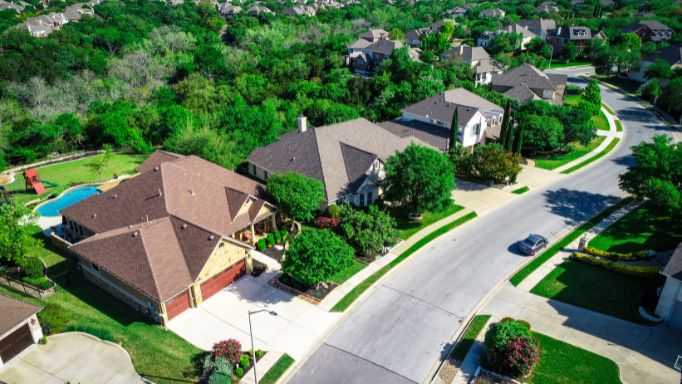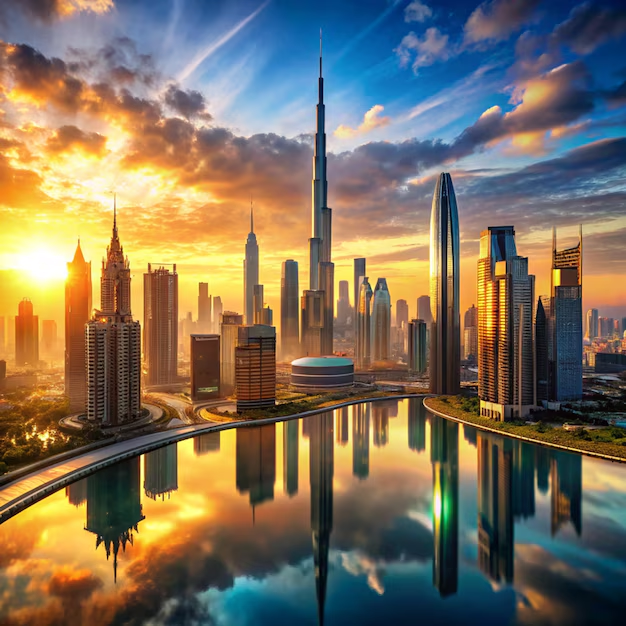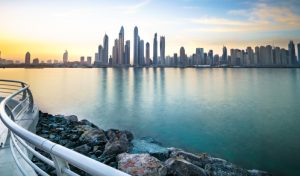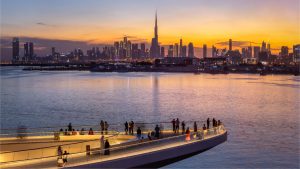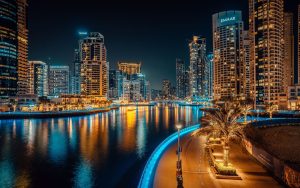Understanding Sustainable Real Estate
Sustainable real estate focuses on buildings that benefit the planet and people. It aims to save energy, use less water, and create healthy spaces.
The Role of Sustainability in Property Development
Sustainability is changing how we build. Real estate developers now think about the long-term impact of their projects.
They choose materials that last longer and are better for the environment. They also plan buildings to use less energy over time.
These choices can save money in the long run. They also make buildings more attractive to buyers and renters.

Sustainable development helps meet the UAE’s Sustainable Development Goals, which aim to make the country better for everyone.
Sustainable Building Technologies
Sustainable building technologies are changing how we design and construct buildings. They help save energy, reduce waste, and create healthier spaces.
Let’s look at some key areas of innovation in green construction.
Green Building Innovations
New materials and design techniques are making buildings more eco-friendly. Recycled steel and concrete reduce the use of raw materials.
- Living walls and rooftop gardens add greenery to urban spaces. They also help cool buildings naturally.
- Smart glass changes tints based on sunlight, cutting cooling costs. 3D printing allows for custom, low-waste building parts. Modular construction reduces on-site waste and speeds up building time.
- Self-healing concrete uses bacteria to fix cracks, extending the life of structures. Phase-change materials in walls store and release heat to keep indoor temps steady.
Energy Efficiency in Construction
Better insulation is a top way to save energy in buildings. New types like aerogel and vacuum-insulated panels work better than traditional materials.
- You can use passive solar design to heat and cool buildings naturally. This means placing windows and thermal mass to capture or block the sun as needed.
- LED lights use way less power than old bulbs. Smart systems turn them off when no one’s around.
- Geothermal heat pumps use steady underground temps to heat and cool buildings year-round. They work in many climates and save lots of energy.
- High-efficiency HVAC systems and energy recovery ventilators keep indoor air fresh while saving power.
Renewable Energy Integration
Solar panels are getting cheaper and more efficient. You can now get thin-film solar that looks like regular roofing. Some windows even generate power while letting light through.
- Small wind turbines can work on tall buildings in windy areas. They add to a building’s clean energy mix.
- Energy storage systems let buildings use renewable power even when the sun isn’t shining. New battery tech is making this easier and cheaper.
- Some buildings now use fuel cells. These turn hydrogen into electricity with only water as a byproduct.
- Microgrids let groups of buildings share and manage renewable energy. This makes the power supply more reliable and efficient.
Dubai’s Sustainable Real Estate Landscape
Dubai is transforming its skyline with eco-friendly buildings and green initiatives.
The city aims to become a global leader in sustainable living through innovative projects and forward-thinking policies.
Sustainable Homes Dubai
Exciting sustainable housing options are available in Dubai. The Sustainable City is a prime example, offering energy-efficient homes powered by solar panels.
These homes use 50% less energy and water than standard buildings.

Masdar City is another green community you can explore. It features smart homes with built-in recycling systems and energy monitoring tools.
These homes help you reduce your carbon footprint while enjoying modern comforts.

Many new developments now include green spaces, bike paths, and water recycling systems. This makes it easier for you to live an eco-friendly lifestyle in Dubai.
Qube Development’s Role in Promoting Sustainable Real Estate
Qube Development, a subsidiary of DHG Investments, is at the forefront of promoting sustainable real estate in the UAE.
Their commitment to sustainability is evident in their projects that prioritize eco-friendly designs, energy efficiency, and community well-being.
Qube Development actively contributes to Dubai’s green building regulations by ensuring all their projects meet and exceed these standards.
They focus on creating residential and commercial spaces that are not only environmentally responsible but also enhance the quality of life for residents and workers.
Dubai’s Clean Energy Strategy 2050
Dubai’s Clean Energy Strategy 2050 changes how you’ll power your home. The goal is to have 75% of Dubai’s energy come from clean sources by 2050.
Solar power is a big part of this plan. You’ll see more solar panels on buildings and in solar parks across the city. The strategy also focuses on nuclear and clean coal energy.
This shift affects real estate too. New buildings must meet stricter energy standards. You might find homes with smart meters and energy-saving appliances becoming more common.
Green Building Regulations and Compliance
Dubai Municipality has set clear rules for green buildings. These rules make sure new buildings are eco-friendly and energy-efficient.
Key points of these regulations include:
- Using sustainable materials in construction
- Installing energy-saving lighting and cooling systems
- Improving water efficiency with low-flow fixtures

Even iconic structures like the Burj Khalifa follow these guidelines. The tower uses special glass to reduce heat and smart systems to manage energy use.
When buying or renting, you can look for buildings with green certifications. These show that the property meets high environmental standards.
Benefits and Barriers in Sustainable Real Estate in UAE
Sustainable real estate offers many advantages but also faces some hurdles. Let’s look at the key benefits and challenges.
Economic and Environmental Advantages
You’ll see big savings on energy bills with sustainable buildings. They use less power and water, cutting your costs. Green buildings also boost property values. Buyers and renters often pay more for eco-friendly spaces.
Sustainable buildings have better air quality and use fewer toxic materials.
This means fewer sick days and higher productivity for you and your staff.
You’ll shrink your carbon footprint by choosing green real estate.
These buildings produce less waste and use renewable energy. Some even generate their own power with solar panels.
Challenges to Mainstream Adoption
The upfront costs of sustainable features can be high. You might pay more for things like solar panels or efficient HVAC systems. But remember, these save money in the long run.
Old buildings are hard to make green. Retrofitting takes time and money. It’s often easier to build new sustainable structures.
Some green tech is still new and untested. You might worry about how well it will work or how long it will last.
Finding experts to design and build sustainable projects can be tough. The field is growing, but skilled pros are still in short supply.
Changing rules and standards can be confusing. It’s hard to keep up with new green building codes and certifications.
Future of Sustainable Real Estate
Smart cities and new technologies will shape the future of sustainable real estate. You’ll see exciting changes in how buildings are designed, built, and managed to be more eco-friendly and efficient.
Predictions for Smart Sustainable Cities
Smart sustainable cities will use data and tech to improve life for residents. You’ll find sensors monitoring air quality, traffic, and energy use. This info will help city planners make better choices.
Buildings will get smarter too. They’ll adjust lighting and temperature automatically to save energy. Some may even produce their own power with solar panels or wind turbines.
Green spaces will play a bigger role. You’ll see more parks, gardens, and trees in urban areas.
These help cool cities and clean the air.
Dubai is leading the way in smart city tech, and other cities will follow its example in the coming years.
Strategies for Future Developments
Future real estate projects will focus on sustainability from the start. You’ll see more buildings made with eco-friendly materials like recycled steel or bamboo.
Energy efficiency will be key. Builders will use better insulation and smart windows to keep heat in or out. They’ll also install high-tech systems to manage power use.
Water conservation will be a priority. You might see buildings with systems to collect rainwater or reuse greywater from sinks and showers.
Developers will think beyond single buildings. They’ll plan whole neighborhoods to be sustainable. This means easy access to public transport and bike lanes.
New tech will make buildings more adaptable. Spaces might change use easily from offices to homes as needs shift.
